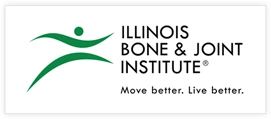Laser Therapy and Adhesive Capsulitis
Adhesive capsulitis, commonly known as frozen shoulder, is a painful and debilitating shoulder condition that affects millions of individuals worldwide. It is characterized by the gradual onset of shoulder pain and stiffness, limiting the range of motion in the affected joint. While the exact cause of adhesive capsulitis is not fully understood, it often occurs without any apparent injury or trauma, making it a challenging condition to manage. Traditional treatment options for adhesive capsulitis include physical therapy, pain medication, and corticosteroid injections. However, emerging research suggests that low-level laser therapy (LLLT) offers an effective alternative for managing this condition. This treatment option avoids the negative effects and risks of corticosteroid injections.
Clinical Presentation
Adhesive capsulitis typically progresses through distinct phases:
- Freezing Phase: This initial phase is marked by the gradual onset of shoulder pain and stiffness. Activities like reaching overhead, lifting, or even getting dressed become increasingly difficult. Pain tends to worsen at night, disrupting sleep.
- Frozen Phase: During this phase, the shoulder stiffness becomes more pronounced, severely limiting the range of motion. Simple tasks like combing your hair or reaching behind your back can be excruciatingly painful and nearly impossible.
- Thawing Phase: In the final phase, the shoulder gradually starts to improve, and range of motion begins to return. This phase can last for several months to years, and full recovery varies from person to person.
Treatment with Laser Therapy
Low-level laser therapy (LLLT), also known as photobiomodulation therapy, is a non-invasive treatment option gaining attention for its potential benefits in managing adhesive capsulitis. LLLT uses low-power lasers or light-emitting diodes to stimulate cellular activity and promote tissue healing. Here’s how LLLT can be applied in the context of adhesive capsulitis:
- Pain Management: LLLT has been shown to reduce pain and inflammation in patients with adhesive capsulitis. By stimulating the release of endorphins and modulating inflammatory processes, LLLT can provide relief from the discomfort associated with this condition.
- Improved Range of Motion: LLLT may help improve joint mobility by enhancing collagen synthesis and reducing scar tissue formation in the shoulder capsule. This can be particularly beneficial during the frozen and thawing phases.
- Accelerated Healing: LLLT can expedite the healing process by increasing blood flow to the affected area, which can aid in tissue repair and regeneration.
Research Studies on LLLT for Adhesive Capsulitis
- “Two-year follow-up of low-level laser therapy for elderly with painful adhesive capsulitis of the shoulder” by David Ip: This study examined the long-term effects of LLLT on elderly patients with adhesive capsulitis. The results showed significant improvements in pain reduction, range of motion, and overall function, with sustained benefits observed up to two years after treatment. This research highlights the potential for LLLT as a viable option for managing adhesive capsulitis in older individuals.
- Additional Research Studies: Several other studies have explored the effectiveness of laser therapy or infrared therapy in treating adhesive capsulitis. While the specific studies may vary, they collectively support the notion that light-based therapies can play a valuable role in pain management and improving shoulder function in individuals with this condition.
- Physical Therapy in Conjunction with LLLT: Incorporating physical therapy alongside LLLT can enhance the outcomes for individuals with adhesive capsulitis. Physical therapists can design customized exercise programs that complement the effects of laser therapy by focusing on stretching and strengthening the shoulder muscles. The combination of LLLT and physical therapy can expedite recovery and help patients regain optimal shoulder function.
Conclusion
Adhesive capsulitis can be a challenging condition to manage due to its prolonged course and debilitating symptoms. While traditional treatments have been the go-to options, low-level laser therapy is emerging as a promising alternative for pain relief, improved range of motion, and enhanced overall function. The research study by David Ip and other related studies provide valuable insights into the potential benefits of LLLT in managing adhesive capsulitis. When combined with physical therapy, LLLT offers a comprehensive approach to help individuals on their journey towards recovery and a pain-free shoulder. If you’re experiencing the symptoms of adhesive capsulitis, consult with a healthcare professional to explore the suitability of LLLT as part of your treatment plan.
At a Glance
Ronak M. Patel M.D.
- Double Board-Certified, Fellowship-Trained Orthopaedic Surgeon
- Past Team Physician to the Cavaliers (NBA), Browns (NFL) and Guardians (MLB)
- Published over 49 publications and 10 book chapters
- Learn more

